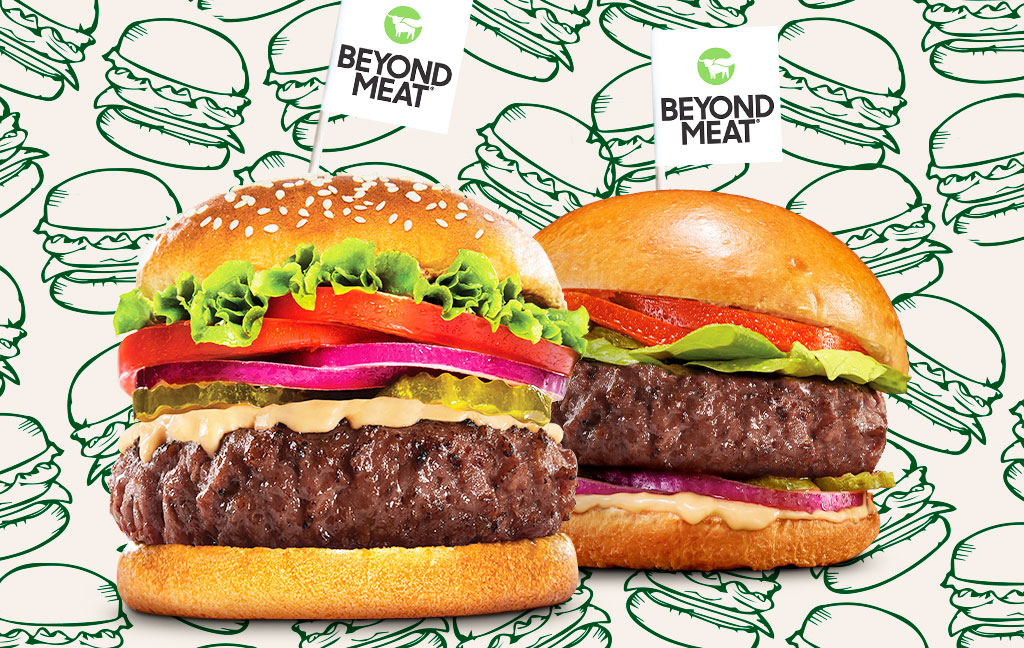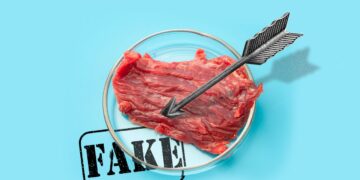[ad_1]
Seitan—a vegan meat various—has a carbon footprint that’s 130 instances decrease than beef, in line with an evaluation launched right now by London-based sustainability agency Thrust Carbon. Compiled on behalf of the UK’s main seitan producer LoveSeitan, the evaluation reveals that whereas 100 kilograms of seitan produces 46.6 kilograms of carbon dioxide equal (CO2e) emissions, the identical quantity of beef produces 6,000 kilograms of CO2e.
“This evaluation gives a superb instance of why seitan is so significantly better for the atmosphere than animal merchandise. Our seitan is greater in protein, decrease in fats, and 130 instances extra sustainable than beef,” LoveSeitan Co-founder Steve Swindon stated. “We anticipate this new knowledge will make folks suppose twice earlier than selecting beef, lamb, rooster, or cheese for his or her subsequent meal. After all, we suggest seitan as the proper various—it’s more healthy and has a tiny carbon footprint comparatively.”
Along with beef, the evaluation checked out different meat merchandise to seek out that 100 kilograms of lamb and rooster produced 2,400 kilograms and 600 kilograms of CO2e emissions, respectively. Whereas the carbon footprint of cheese is commonly ignored, this evaluation additionally discovered that 100 kilograms of dairy product resulted in 2,100 kilograms of CO2e emissions. Along with seitan, tofu additionally had a comparatively low footprint, with 100 kilograms of the soy-based product contributing 300 kilograms of CO2e emissions.
“When you actually care about local weather change and carbon emissions, simply keep in mind you can have 130 seitan burgers for a similar carbon footprint as one beef burger,” Swindon stated. “Let that one sink in for a bit.”
What’s seitan?
Seitan is comprised of wheat gluten (the primary protein present in wheat) that’s washed to create a fibrous dough that acts as a substitute to meat. The stretchy dough absorbs marinades and may be cooked utilizing the identical strategies utilized to meat reminiscent of grilling, sautéeing, smoking, and oven-roasting.
Whereas Chinese language cultures have consumed wheat gluten for hundreds of years, the time period “seitan” was first coined in 1961 in Japan by George Ohsawa, the founding father of the macrobiotic weight loss plan who introduced the versatile vegan meat to the West within the ‘60s. World Seitan Day will probably be celebrated in honor of the environmentally pleasant vegan meat on October 18, 2021—Ohsawa’s birthday. 
Environmentally pleasant vegan meats
Along with seitan and tofu, branded vegan meats are additionally extra environmentally pleasant than their animal-derived counterparts. In terms of the Past Burger, a Life Cycle Evaluation (LCA) carried out by the College of Michigan in contrast the environmental influence of the plant-based burger to 1 / 4 pound beef burger and located that the Past Burger used 99 p.c much less water, 93 p.c much less land, and 43 p.c much less power whereas emitting 90 p.c fewer greenhouse gases than its animal-derived counterpart. 
Equally, Not possible Meals—which just lately welcomed Paris Local weather Settlement architect Christiana Figueres to its board—shared that its plant-based Not possible Burger makes use of 96 p.c much less land, 87 p.c much less water, and emits 89 p.c much less greenhouse gases than typical beef from cows.
Given the smaller carbon footprints of vegan meat alternate options, instructional establishments around the globe are ditching beef to save lots of the planet, together with London School of Economics and Political Science, College of Cambridge, College of East Anglia, Goldsmiths of the College of London, and Portugal’s College of Coimbra.
Photograph credit score: LoveSeitan
Love the plant-based life-style as a lot as we do?
Get the BEST vegan recipes, journey, superstar interviews, product picks, and a lot extra inside each concern of VegNews Journal. Discover out why VegNews is the world’s #1 plant-based journal by subscribing right now!
[ad_2]
Source link







